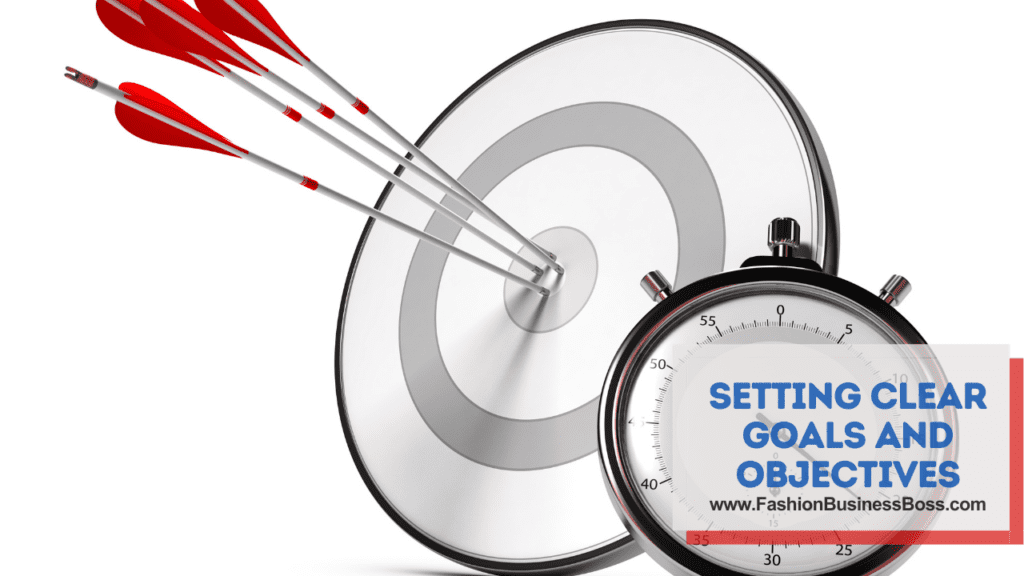Fashion entrepreneurship is an exciting and competitive industry that requires a unique blend of creativity, business acumen, and a strong understanding of consumer preferences. Aspiring fashion entrepreneurs often find themselves facing numerous challenges while trying to establish and grow their clothing brands.
Here’s some secrets to create a clothing store business plan: set clear goals, budget properly, strategize marketing and sales, and more. This is your roadmap to fashion growth.
In this article, we will delve into the secrets of top fashion entrepreneurs and explore how to master your clothing brand’s business plan for long-term growth.
Setting Clear Goals and Objectives

Define short-term and long-term goals that are specific, measurable, achievable, relevant, and time-bound (SMART). These goals will help you track progress and stay focused.
Budgeting and Financial Planning
Fashion businesses require careful financial management. Budget for expenses related to production, marketing, operations, and other aspects of your business.
Read more about: The Art of Branding: How to Make a Business Plan for Your Clothing Line?
Marketing and Sales Strategy
Outline your marketing and sales approach to reach your target audience effectively. Utilize both online and offline channels to maximize exposure.
Supply Chain Management
Efficient supply chain management ensures a smooth flow of materials and products from sourcing to distribution.
E-Commerce and Brick-and-Mortar Strategies
Determine whether you will focus on e-commerce, physical retail, or a combination of both.
Conclusion
The stability of your clothing store business hinges on a well-rounded approach that encompasses clear goal setting, meticulous budgeting, effective marketing and sales strategies, efficient supply chain management, and a thoughtful consideration of e-commerce and brick-and-mortar strategies. By adhering to these principles and continuously refining your business plan to adapt to market dynamics, you can aspire to create a thriving clothing store that not only meets your objectives but also establishes a strong presence in the ever-evolving fashion industry.
Frequently Asked Questions

How important is sustainability in the fashion industry?
Sustainability is increasingly vital for fashion brands as consumers seek eco-friendly and ethically produced products. Brands that prioritize sustainability gain a competitive advantage and appeal to conscious consumers.
Should I focus on e-commerce or physical retail for my clothing brand?
The decision depends on your target audience, budget, and business goals. Many fashion brands benefit from a combination of both online and offline sales channels to reach a broader customer base.
How to protect a fashion brand from copycats and imitations?
To safeguard your brand, consider trademarking your logo and designs. If you spot copycats, consult with legal experts to take appropriate legal actions.
What are the key components of a business plan for a clothing store?
A comprehensive business plan for a clothing store typically includes sections such as an executive summary, market analysis, competitive analysis, marketing and sales strategy, operational plan, management and organization structure, financial projections, and funding requirements. Each of these elements plays a crucial role in outlining the store’s objectives and how it intends to achieve them.
How can a clothing store’s business plan attract potential investors or lenders?
To attract potential investors or lenders, a clothing store’s business plan should focus on presenting a compelling case. This includes providing a clear description of the market opportunity, demonstrating a deep understanding of the target audience, showcasing a well-thought-out marketing strategy, and presenting realistic financial projections. A solid management team and a well-defined competitive advantage can instill confidence in potential stakeholders, increasing the likelihood of securing funding for the business.
To learn more about starting your own clothing business, check out my startup documents here.
The information provided by FashionBusinessBoss.com (“The Site”) is for general informational purposes only. All information on the Site is provided in good faith, however, we make no representation or warranty of any kind, express or implied, regarding the accuracy, adequacy, validity, reliability, availability or completeness of any information on the Site. Under no circumstance shall we have any liability to you for any loss or damage of any kind incurred as a result of the use of the Site or Reliance on any information provided on the Site. Your use of the Site and your reliance on any information on the Site is solely at your own risk. This blog post is for educational purposes only and does not constitute legal advice. Please consult a legal expert to address your specific needs. Terms and Conditions. (https://fashionbusinessboss.com/terms-and-conditions/)

Meet Shawn Chun: Entrepreneur and Fashion Business Fan.
I’m a happy individual who happens to be an entrepreneur. I have owned several types of businesses in my life from a coffee shop to an import and export business to an online review business plus a few more and now I create online resources for those interested in starting new ventures. It’s demanding work but I love it. I do it for those passionate about their business and their goals. That’s why when I meet a designer or boutique owner at a craft fair, farmers market, retail location or anywhere else I see myself. I know how hard the struggle is to retain clients, find good employees and keep the business growing all while trying to stay competitive.
That’s why I created Fashion Business Boss: I want to help fashion business owners like you build a thriving business that brings you endless joy and supports your ideal lifestyle.

